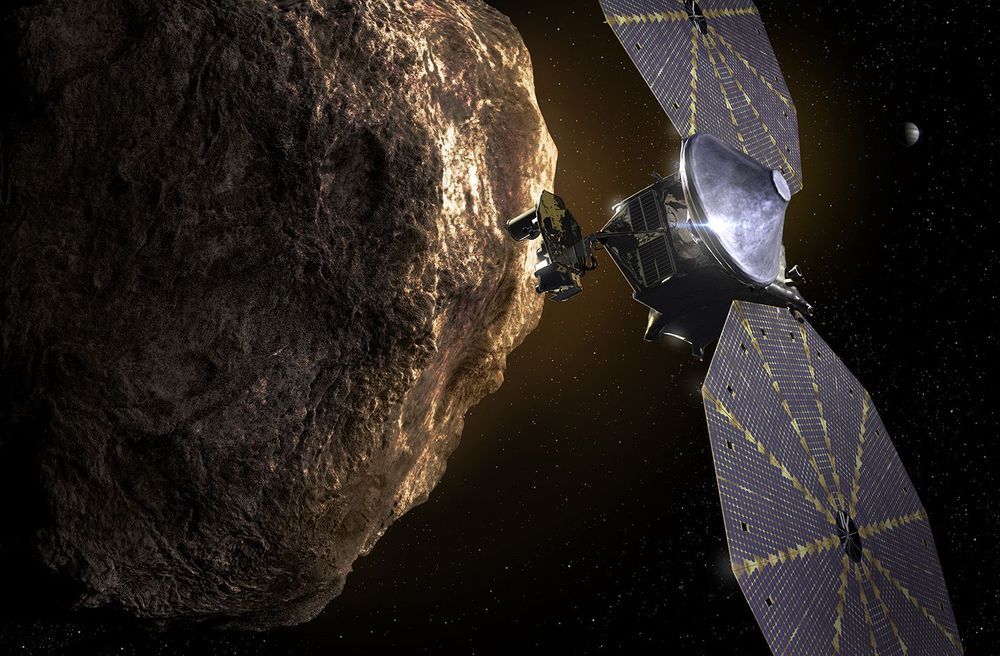NASA’s Lucy mission team is seeing double after discovering that Eurybates, the asteroid the spacecraft has targeted for flyby in 2027, has a small satellite. This “bonus” science exploration opportunity for the project was discovered using images taken by the Hubble Space Telescope’s Wide Field Camera 3 in September 2018, December 2019, and January 2020.
Launching in October 2021, Lucy will be the first space mission to study the Trojan asteroids, a population of small bodies orbiting the Sun “leading” and “trailing” Jupiter, at the same distance from the Sun as the gas giant. With flyby encounters past seven different asteroids – one in the Main Asteroid Belt and six in the Trojans, Lucy will be the first space mission in history to explore so many different destinations in independent orbits around our Sun.
“This newly discovered satellite is more than 6,000 times fainter than Eurybates, implying a diameter less than 1 km,” said Southwest Research Institute’s Hal Levison, principal investigator of the mission. “If this estimate proves to be correct, it will be among the smallest asteroids visited.”
